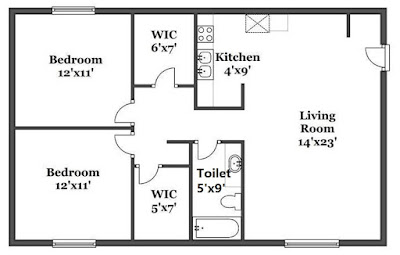How GST and RERA are impacting real estate.
The Indian economy in the past year has gone through a massive makeover, and especially the real estate Industry. Starting from Demonetization in late 2016 and then moving to Goods and Service Tax midway 2017. And now, most recent being the Real Estate (Regulation and Development) Act or widely termed as ‘RERA’.
Undoubtedly, all the factors are headed to make a positive impact on the Country’s economy in the long run, but, only with a certain contribution from present market customers.
Impact of GST: The Goods and Service tax came into force on 1 July 2017 and substituted all the indirect taxes applicable on all utilities. The GST, which has already been adapted by most of the countries received a positive response from both the producers as well consumers in the Country as it is expected to raise the GDP of the country in near future. The real estate sector also welcomed the new tax regime as it will benefit both the real estate developers as well as homebuyers.
According to reports, there will be a drop of 1% - 3% in the prices of property in future which will lead to more potential investors in the real estate and strengthen the sector. However, there will be a slight rise in the prices of homes at present, as the current GST is set for a bracket of 12%, which was previously with indirect taxes set at 9%.Ready to move-in homes is expected to generate more profit than under-construction for buyers. But, as GST will replace multiple types of taxes for builders, it will be of a huge benefit to them. Real estate developers were liable for a separate 15% tax on services like labor, architect fees, legal charges and others. GST will unify all of it and will be a big relief to builders. As soon as the cost of production starts to fall, the cost of purchase eventually will also come to terms with it. The complete effect of this Tax regime will only be visible after a period of 2-3 years.
Impact of RERA: The Real Estate (Regulatory and Development) Act was rolled out on 1 May 2017. The Act provides a regulatory system for the Real Estate Industry which is distributed among the states separately. The State Cabinets and Authorities are responsible for notifying the final rules of the Act, which has already been done by most of the states. RERA is expected to bring transparency between the investors and the developers. Another benefit of the Act enforces the builders to put 70% of the investor’s amount in separate escrow accounts for the purpose of construction fund, to prevent from insolvency and other frauds. RERA also helps by providing a separate window for complaints, which is serving as a big relief for homebuyers to take a step against the fraudulent developers and brokers. RERA also makes it mandatory for all the real estate agents to register with the Act, which will weed out all the fraud agents of the real estate sector. Because of the guidelines and rules of the Act, the builders will have to deliver the projects on the aforementioned date, with a flexibility to choose the date of delivery. In a glance, RERA provides a win-win situation for the whole real estate sector and will strengthen it in the coming years.
Both RERA and GST are revolutionary in the sense that such steps has been taken for the first time in the Country. What impact they generate on the Real Estate Industry will only be evident after a certain amount of time in their presence.



